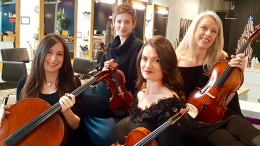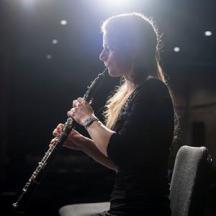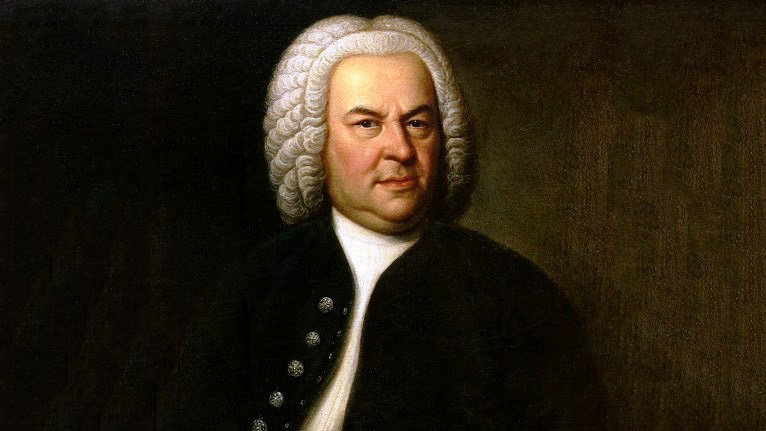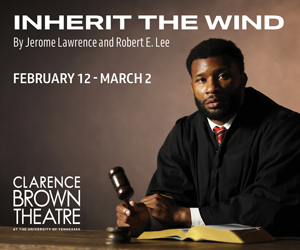Confessions of a Bachophile is a continuation of an article series I began on Classical Journal several years ago. As personal history, it was the music of J.S. Bach that first captured my classical music imagination as a child. Today, while one cannot mention Baroque music without mentioning the universality of Bach and his legacy, the quantity of performances of his music actually falls short of his fellow Baroque period inhabitants, Handel and Vivaldi. There are a number of reasons for this—Bach’s own milieu dominated by religious motivations and the difficulty that modern programmers have in mixing Bach with 19th and 20th Century composers on the same program. So, in a world where one cannot escape the inevitable and seemingly ubiquitous performances of the Messiah and The Four Seasons (not that there is anything wrong with that), my intention has been to give a little more ink to the brilliance and appeal of J.S. Bach.

Somewhat coincidentally in the last few days, Knoxville audiences had a bit more Bach to rejoice over than usual. On Friday evening, the exciting new ensemble, the Inner Voices String Quartet, offered a substantially large audience at the out-of-the-ordinary venue of GEO Hair Lab on Fifth Avenue an hour or so of music for string quartet. Their program was titled “Barber at the Hair Salon” featuring Samuel Barber’s String Quartet in its entirety. Other works were excerpted: the second movement of Ravel’s String Quartet in F major, the first movement of Debussy’s String Quartet in G minor, a movement from Haydn’s “Sunrise” String Quartet, Op. 76 No. 4—and the gorgeous slow movement from Bach’s Double Violin Concerto (BWV 1043 arranged for string quartet).
I am happily on record as saying the mere presence of Inner Voices on Knoxville’s music scene is important on several levels, as they represent an expansion of the music scene that is essential for its health. The fact that this ensemble is absolutely top-notch, a fact that the large and toasty Friday night crowd can attest to, is just icing on our classical music cake. Encouraging their continuation and more frequent appearances is something to take quite seriously.
[Inner Voices String Quartet consists of Rachel Loseke and Ruth Bacon Edewards (violins), Christina Graffeo (viola), and Jeanine Wilkinson (cello)]
On Wednesday evening, the Knoxville Symphony Orchestra’s Concertmaster Series at the KMA, “Gabriel Lefkowitz and Friends,” returned for their second slot of the season. On this trip, however, the event embraced not only a larger ensemble of strings, but also two works that feature woodwinds.

Included on Lefkowitz’s program was Bach’s Concerto for Violin and Oboe in C minor (BWV 1060R) featuring the concertmaster and the KSO’s Principal Oboe, Claire Chenette, as the soloists.
Of course, it is somewhat of a miracle that the concerto is even available to us. The concerto survived only in a form written for two harpsichords, but scholars have confidently determined that its original form was for oboe and violin soloists. While the solo lines are not overwhelmingly virtuosic, Bach’s brilliant dialog between the two instruments is Bach at his cleverest best. Lefkowitz and Chenette offered a deliciously attractive and precise performance that had all of Bach’s charming subtleties of technique and the big picture.
Mozart had his turn on the second half of the evening with KSO Principal clarinet Gary Sperl joining a quartet of strings (Lefkowitz and Gordon Tsai, violins; Kathryn Gawne, viola; Andy Bryenton, cello) for a satisfying performance of the Quintet for Clarinet and Strings in A Major.
In case anyone feels I besmirched the reputation of Vivaldi and his The Four Seasons above, I’ll temper that comment. I gladly report that Lefkowitz and his ensemble opened the program with the “Spring” concerto from that set in a performance that oozed warmth and a re-awakening spirit. Although the auditions for a new concertmaster begin soon, I think all will agree that Lefkowitz’s shoes will, indeed, be hard to fill.






